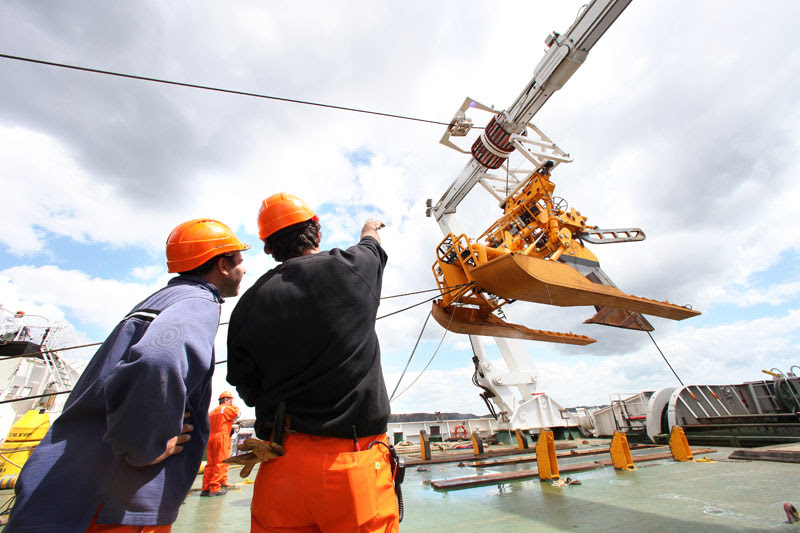Sébastien Hié, Regional Sales Director, Orange
French telecommunications giant orange is one of 14 partners in a consortium formed to lay an undersea cable linking Myanmar and other Southeast Asian countries with the Middle East and Western Europe. The 20,000-kilometre SEAME-WE 5 fibre optic cable will be the second to link with Myanmar, after SEAME-WE 3. Mizzima Business Weekly’s Manny Maung spoke with Orange regional sales director, Sébastien Hié, during his recent visit and asked about his company’s role in the cable project and what it will mean for the connectivity in Myanmar.

What is Orange is doing in Myanmar?
Orange has signed a contract agreement to co-finance and co-construct the SEA-ME-WE 5 cable, which is expected to be completed in 2016. We will use the EU backbone to connect to the major data centres in Europe and beyond, through IP [Internet Protocol addresses] connections in France and the rest of Europe.
Will you be working closely with the Myanmar government?
We have established that the landing station of the cable in France will be in Marseilles. However, we are not involved in determining the [site of the] landing station in Myanmar or in any way involved in the capacity building of the infrastructure and skills in the country.
Myanmar Post and Telecommunications, (MPT) which formerly had a monopoly on telecommunications services in Myanmar, is one of your partners and is also a member on the consortium. How confident are you about your partnership with MPT?
We already have a relationship with [MPT], as we were involved in helping to implement the SEA-ME-WE 3 cable, of which we are co-owners. So we already have those ties and a partnership. Orange is also a partner with MPT roaming services where we have roaming agreements for the mobile phone networks in Myanmar and other countries where we have partnerships. We have already seen the benefits of this relationship with increasing numbers of visitors to Myanmar being able to use roaming mobile calls and also use inter-service messaging.
Is Orange confident that Myanmar will remain open for business and create more business opportunities?
For the past year, the country has been open for business and we are confident that Myanmar will remain open. We are confident that cable capacity will be better because there is so much room for growth and we have proven records that better IP connectivity can improve the quality of life for individuals. Also, every business in Myanmar requires better infrastructure development to happen, as better connectivity will also help Myanmar businesses to prosper.
What benefits do you see emerging from the momentum towards improved telecommunications to Myanmar?
Today we are really in the IP world. There are two key improvements that we can see happen. The first is that the current underground cable can be made redundant. It is very old already and was laid in 1999, so already we can benefit from new technology and make that redundant; redundancy is the first benefit.
Second, there will be a massive increase in capacity with the laying of a new, state-of-the art cable. The cable has the ability to transfer 100 gigabytes per second and high speeds of about 24 terabytes per second. A Web Developer Network also enables the capacity into the country to be increased without additional submarine works. In addition, services and IP connectivity will be better, so service providers like Ooredoo, Telenor and MPT can offer their users experiences like better voice quality. Today the internet penetration rate is very low. Businesses need to dedicate capacity to work efficiently but increased capacity will help business exponentially.
What does Orange hope to achieve from your visit to Myanmar?
The objectives of the international carrier division of the orange club is to learn more about the development of the country and to serve all the carriers in Myanmar. We have a good carrier services relationship with MPT and we are very interested in working with other carriers.
What has been the regional and international response to your company’s involvement in Myanmar?
The feedback has been overwhelmingly positive and everyone is motivated and willing to do business in a booming market. Each company, of course, has their own objectives and challenges as they enter a market like this. The culture is different and the way to do business varies in Myanmar from other countries. We have to adapt to work in that kind of environment.
What are your impressions of Myanmar?
It has been a very short trip for me as I am already heading back after the [Myanmar Connect] conference, but I hope to come back regularly as I’m based in Singapore. Referring to roaming services, there is a lot that needs to be improved, such as the infrastructure, but we feel developments are headed in a good direction.
The SEA-ME-WE 5 cable and other submarine projects may be coming and Myanmar could be connected to the World Wide Web via more terrestrial links.
I’m very happy to see a lot of improvement in this regard. Telecommunications has the power to change lives forever. Orange has seen this in other countries that were in similar development stages. Telecommunications can provide better access to information, healthcare, education and mobile access can provide lots of positive aspects for the population, not to mention in the rural areas. Mobile access in the rural areas alone can greatly improve lifestyle, even simply to offer good entertainment via their mobile and internet connection.



